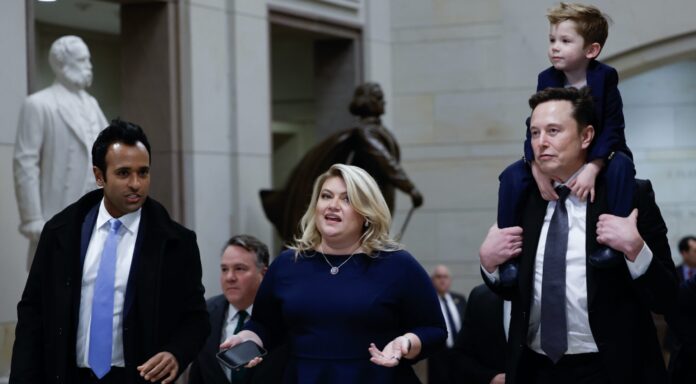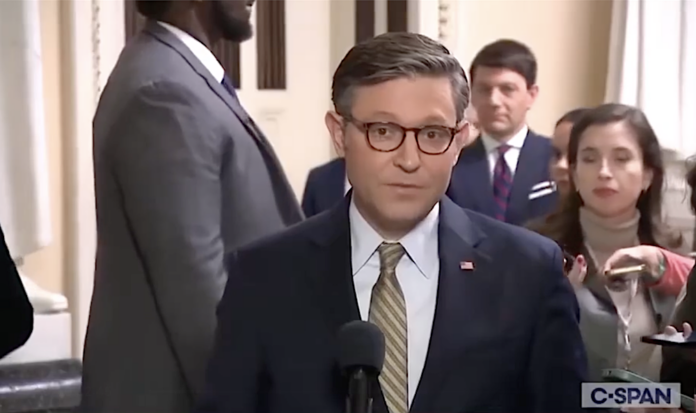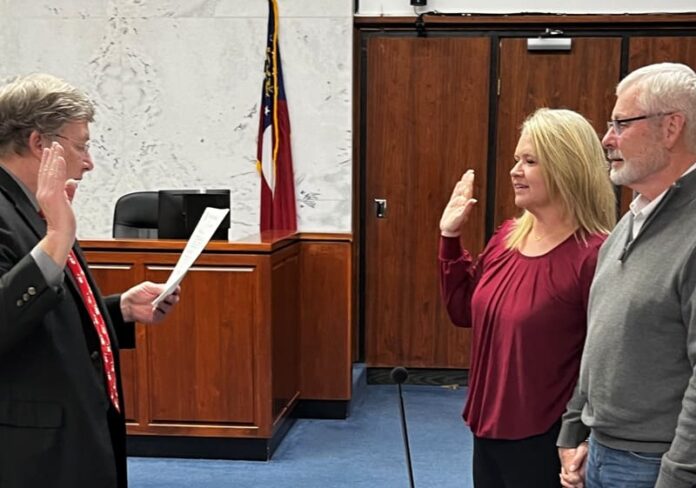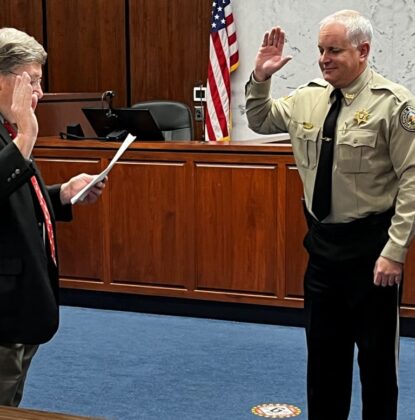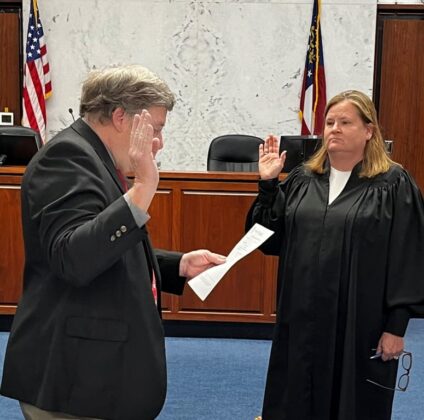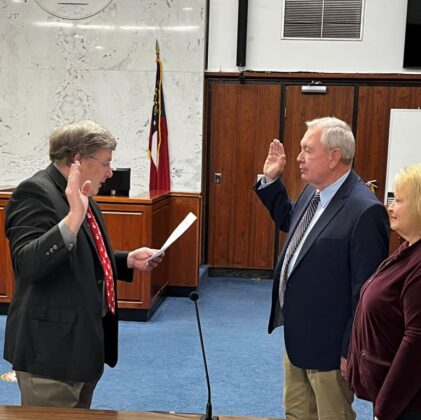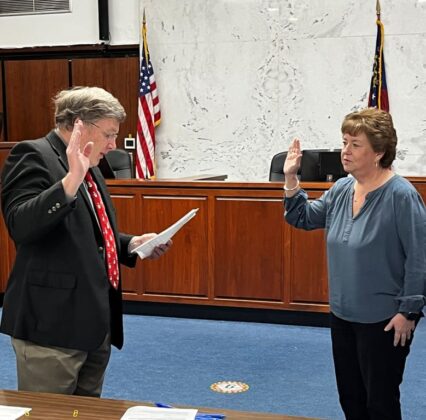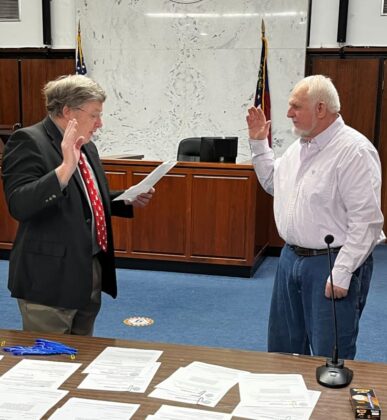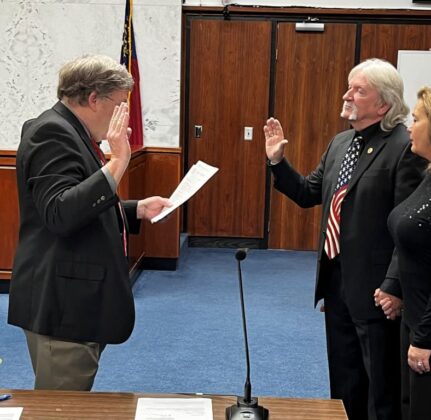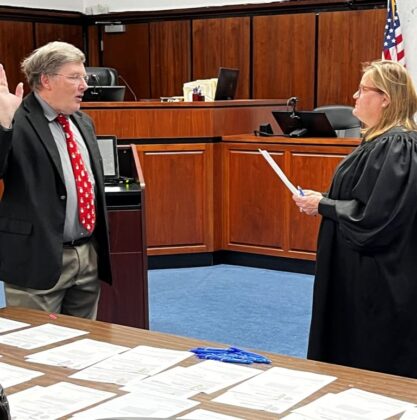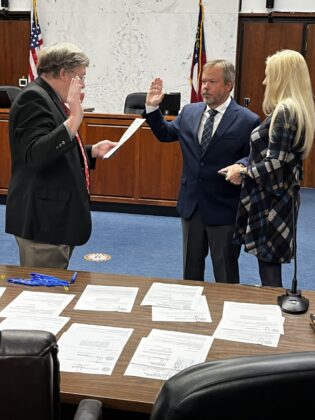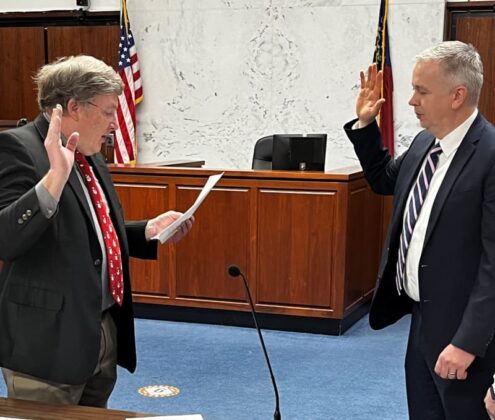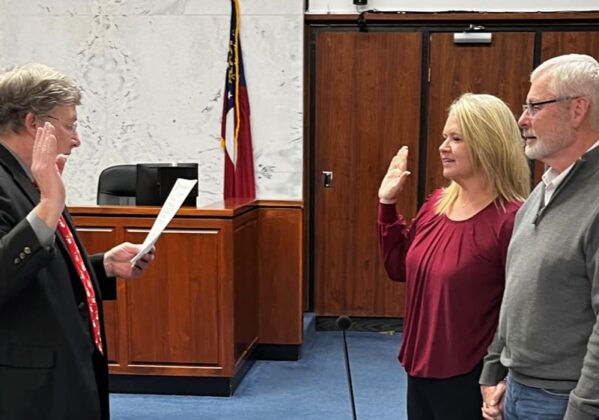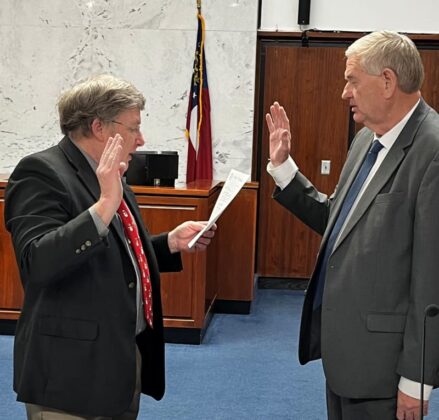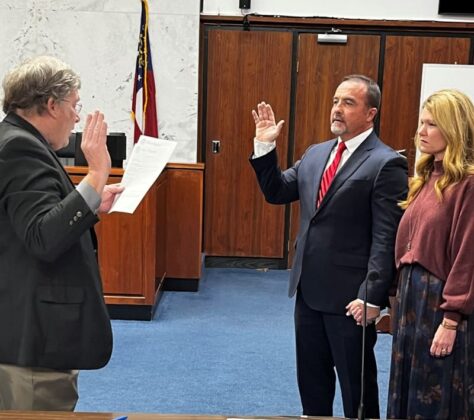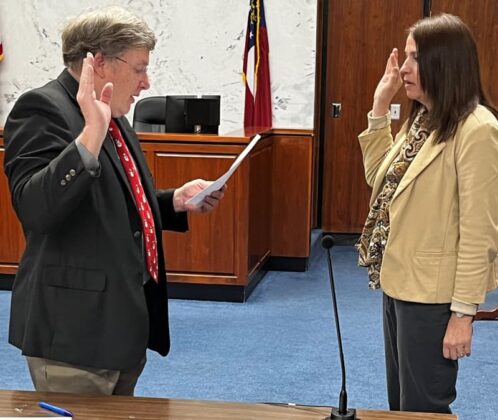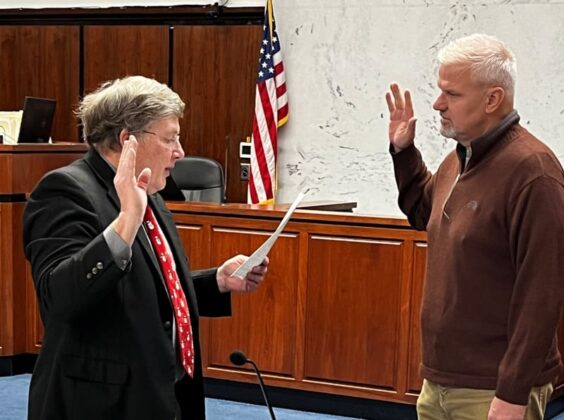WASHINGTON — President-elect Donald Trump enlisted Washington outsiders Elon Musk and Vivek Ramaswamy to tell members of Congress how they should run things.
But Musk and Ramaswamy as they build their Department of Government Efficiency, or DOGE, don’t actually hold any elected or bureaucratic positions in the federal government — giving two hard-driving businessmen far less authority than they’re used to having in the private sector.
The duo will need to garner support from hundreds of members of Congress for any of their suggested spending cuts to become law, even with Republicans in control of the White House and both chambers of Congress. That is an uphill slog many have failed at before.
The mix of personalities, differing committee jurisdictions and separation of powers laid out in the Constitution could create tension, to say the least, when powerful Republican lawmakers disagree with or outright ignore Musk and Ramaswamy. Several Republicans indicated in interviews with States Newsroom that they intend to listen to the DOGE duo but will not back down from their roles as elected representatives of the people.
Maine Republican Sen. Susan Collins, the incoming chairwoman of the Appropriations Committee, said during a brief interview she believes the two men can offer lawmakers “valuable insights” and advice, but cautioned the power of the purse rests with Congress.
“It doesn’t mean that we will take all of these issues, but it’s always helpful to have additional oversight,” Collins said. “And so I look forward to seeing what they come up with.”
Rhode Island Democratic Sen. Sheldon Whitehouse, chairman of the Budget Committee, summed up Democrats’ views on the Musk-Ramaswamy entity in a social media post.
“What does Doggie (“DOGE”) do? Maybe think of it this way: you have to watch a couple of precocious toddlers for the day,” Whitehouse wrote. “They need activities, but you don’t want them near stoves, cars, electrical equipment, or anything operational.”
Meet the appropriators
In Congress, the Appropriations Committee is tasked with drafting the dozen annual government funding bills that total about $1.7 trillion. The legislation funds the vast majority of federal departments and agencies, including Agriculture, Defense, Energy, Interior, Justice, State and Transportation.
The other two-thirds of federal spending covers interest payments on the debt, Social Security, Medicare and Medicaid.
Idaho GOP Rep. Mike Simpson, chairman of the Interior-Environment Subcommittee, told States Newsroom he expects there will be “conflict” between Congress and the Musk-Ramaswamy group, in part, because they don’t have the years, or even decades, of experience learning the ins and outs of federal spending that appropriators hold.
“I noticed that they’ve said that they want to defund public television. I think they might get some kickback on that,” Simpson said. “To me, that’s a policy decision, not an efficiency issue.”
When GOP lawmakers met with Musk and Ramaswamy behind closed doors in early December to talk about government spending, Simpson said, the two pressed the idea that Trump should be able to cancel spending he deems “waste.”
But what Trump might consider unnecessary could be an essential program to a GOP lawmaker or a rural community, Simpson said.
There’s also a federal law called the Impoundment Control Act that prevents presidents from halting funding that Congress has approved and a Supreme Court ruling that bars the president from using line-item vetoes.
Arkansas Republican Rep. Steve Womack, chairman of the Transportation-HUD Subcommittee, told States Newsroom he expects there will need to be some “deconfliction” once Musk and Ramaswamy release their proposals.
“There will be a lot of different, competing interests and ideas, and we’ll just have to see what those are,” Womack said. “It’s a little premature, but, yeah, I’m sure there’ll be some deconfliction, there’ll be some negotiating. Some of this will be leveraged with other significant emotional events up here like debt ceiling, or funding the government.”
Floor votes could also be a hurdle for the various DOGE groups if they don’t gain Democratic support. Republicans will hold just 220 seats in the House at the start of the 119th Congress before a few of their members depart for other opportunities. That razor-thin margin means proposals from Musk and Ramaswamy will need support from the full spectrum of GOP lawmakers to pass.
Then they’ll need to gain the support of nearly all 53 GOP senators if they expect any spending cuts proposals to become law through the complex budget reconciliation process.
Proving their value
One of the many challenges for Musk and Ramaswamy will be showcasing how their efforts differ from those of the White House budget office.
Bipartisan Policy Center Managing Director for Economic Policy Rachel Snyderman said in an interview with States Newsroom she’ll be watching closely to see whether Musk and Ramaswamy integrate their proposals with the president’s budget request, which the White House will likely release sometime in the spring.
That massive document tells Congress how the president wants lawmakers to change tax and spending policy. Congress, however, rarely follows it to the letter and often ignores large swaths of it.
If Musk and Ramaswamy’s proposals go a completely different route, it could create confusion about what exactly it is the Trump administration wants lawmakers to do and could bog down any support they might get on Capitol Hill.
But simply mirroring what’s already in the budget request would lead to a question about whether or not Musk and Ramaswamy serve any real purpose.
“If you go back and look at the budgets from Trump’s first term … they averaged about $1.6 trillion in cuts over a 10-year budget window,” Snyderman said. “And at least for the first two years, those were presented to a GOP trifecta as well and not implemented as policy.”
Snyderman said Musk and Ramaswamy will likely want to do something other than reinvent the wheel by simply republishing the hundreds of government efficiency and spending cuts proposed over the years by the Congressional Budget Office, the Government Accountability Office and inspectors general.
Those groups have given lawmakers and presidents plenty of recommendations to reduce waste, fraud and abuse. But government officials don’t always act on their suggestions.
“There have been so many resources over the years doing just this — proposing smart, sensible, but tough pills to swallow when it comes to government efficiency,” Snyderman said. “What I think it’s going to really boil down to is what’s politically palatable through legislative or executive action. And where as a nation we’re willing to make those trade-offs in service to improve our fiscal outlook and trying to get a handle on the national debt.”
One of the more recent examples, she said, was the nonpartisan Congressional Budget Office’s release of a detailed, 116-page report on ways that lawmakers could reduce the deficit in mid-December.
Impoundment law
If Republicans disagree with Musk and Ramaswamy’s suggestions or only put a few of them in place, it could lead Trump to try to cut spending unilaterally.
Such a decision would create considerable issues for Republicans, since it would violate the Impoundment Control Act and potentially set a new precedent that future Democratic presidents could use to ignore Congress on conservative spending priorities.
That Impoundment Control Act, enacted after then-President Richard Nixon refused to spend billions approved by lawmakers, essentially says a president must distribute money Congress has approved for various federal departments and agencies. It also gives the president a couple of paths to ask lawmakers to cut spending they’ve already approved, but they must agree.
Russ Vought, who has been nominated as director of the Office of Management and Budget, is likely to press the belief that presidents can unilaterally cancel spending, often called “impoundment.”
The Center for Renewing America, the think tank Vought established following his stint as OMB director during the first Trump administration, has repeatedly argued the Impoundment Control Act is unconstitutional and published a detailed history of how presidents canceled spending before the 1974 law took effect.
The Trump administration ignoring the ICA would likely lead to legal challenges and eventually a Supreme Court ruling.
Checks and balances
North Dakota Sen. John Hoeven, the top Republican on the Agriculture Appropriations Subcommittee, told States Newsroom some of the government efficiency proposals that Musk and Ramaswamy pursue will be able to move through executive action, but said any spending cuts must go through Congress.
“This is a country of 320 million people that all have a different point of view about all these different issues, which is why you’ve got to have the kind of process we have, the checks and balances and all that — to figure out where is there enough support to implement these recommendations,” Hoeven said. “That’s how the system works because you’re talking about something that’s very far-reaching and it’s going to affect people throughout the country.”
Arkansas Sen. John Boozman, the top Republican on the Military Construction-VA spending subcommittee, said he expects there will be a lot of communication between lawmakers, Musk and Ramaswamy about constitutional authority to try to avoid public disagreements, though he didn’t rule that out.
“I think as long as the communication lines are open, we should hopefully end most of that,” he said.
Incoming Senate Majority Leader John Thune, R-S.D., said during a press conference he expects it will take some time for Musk and Ramaswamy to “scrutinize government operations and figure out where we can achieve savings and efficiencies” before Congress reviews those recommendations and puts them in a bill.
Thune said he would like to see some of those move through the budget reconciliation process that Republicans are planning to use to get around the Senate’s 60-vote legislative filibuster; essentially allowing the GOP to move sweeping policy changes without Democratic input.
More cooks in Congress
Republicans have talked about cutting government spending for decades, but haven’t used unified control of government to make significant structural reforms in quite some time.
Newly formed groups in the House and Senate will likely provide some support for Musk and Ramaswamy’s proposals, but they may disagree with them as well, or come up with completely separate ideas.
The combination of Musk and Ramaswamy’s DOGE, a soon-to-be-formed House Oversight subcommittee on government efficiency chaired by Georgia Republican Rep. Marjorie Taylor Greene and the government efficiency caucus could become a too-many-cooks scenario.
The Delivering Outstanding Government Efficiency Caucus already holds several Republican lawmakers among its ranks, but it doesn’t have the jurisdiction that the Appropriations Committee holds. Neither does the Oversight subcommittee.
Iowa Republican Sen. Joni Ernst established the caucus alongside Florida Rep. Aaron Bean and Texas Rep. Pete Sessions
North Carolina’s Ted Budd, Texans John Cornyn and Ted Cruz, Oklahoma’s James Lankford, Utah’s Mike Lee, Kansan Roger Marshall, Ohio’s Bernie Moreno, Missouri’s Eric Schmitt, Florida’s Rick Scott and Alaska’s Dan Sullivan have all joined the group on the Senate side.
House members include Rick Allen of Georgia, Jim Baird of Indiana, Andy Barr of Kentucky, Stephanie Bice of Oklahoma, Josh Brecheen of Oklahoma, Ben Cline of Virginia, Jeff Duncan of South Carolina, Ron Estes of Kansas, Pat Fallon of Texas, Randy Feenstra of Iowa, Scott Franklin of Florida, Carlos Giménez of Florida, Glenn Grothman of Wisconsin, Diana Harshbarger of Tennessee, Doug LaMalfa of California, Nick Langworthy of New York, Debbie Lesko of Arizona, Barry Loudermilk of Georgia, Anna Paulina Luna of Florida, Celeste Maloy of Utah, Tom McClintock of California, Cory Mills of Florida, Dan Newhouse of Washington, Ralph Norman of South Carolina, Gary Palmer of Alabama, David Rouzer of North Carolina, Mike Rulli of Ohio, Maria Elvira Salazar of Florida, Jeff Van Drew of New Jersey, Beth Van Duyne of Texas, Derrick Van Orden of Wisconsin, Tim Walberg of Michigan, Randy Weber of Texas, Daniel Webster of Florida, Roger Williams of Texas and Joe Wilson of South Carolina.








